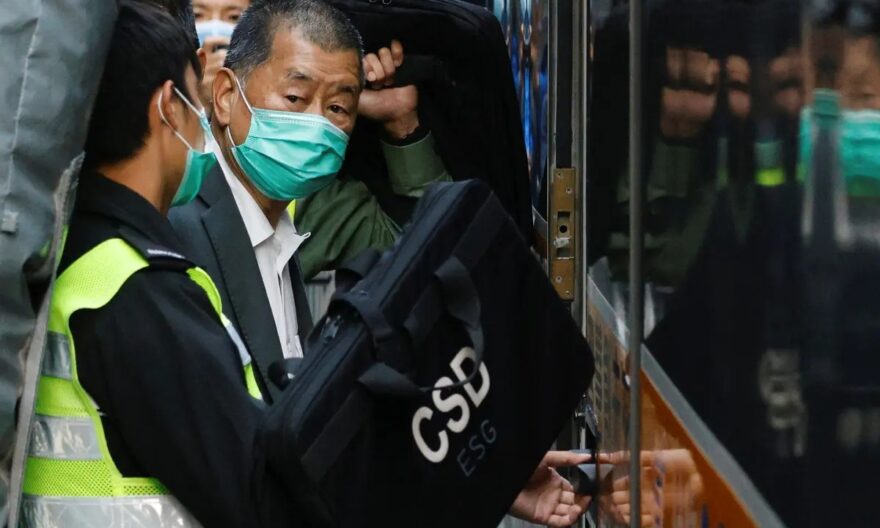
The attempt by Jimmy Lai, a jailed media tycoon in Hong Kong, to challenge a warrant obtained by national security police to examine the contents of his mobile phones in the city’s highest court has been rejected by an appeal court.
Lai, who is the founder of the now-closed pro-democracy newspaper Apple Daily, is set to go on trial in September on charges related to the national security law and a colonial-era sedition law. Lai, known for his criticism of China’s Communist Party leadership including pPresient Xi Jinping, has been contesting the police scrutiny of his phones since his arrest in August 2020, claiming they contained journalistic material.
The claim was rejected by the High court when Li’s Lawyers stated that searches could lead to “chilling effects” on the freedom of the press.The Court of Appeal judges ruled that Lai’s lawyers could not appeal to the highest court as they raised new points not previously addressed and “failed to make a proper case”. His Lawyers argued that despite the phone- search by the police, the issues had “great public interest” involved.
It remains uncertain whether Lai’s legal team will pursue any further actions.
In May, Lai’s attempt to halt his trial under the national security law was unsuccessful. If convicted, he could face a potential life sentence, effectively spending the rest of his life in prison.
The national security law was imposed by Beijing on Hong Kong in 2020 following extensive anti-government protests. This law carries severe penalties, including life imprisonment, for offenses such as subversion, collusion with foreign forces, and terrorism. Critics argue that the law is part of Beijing’s attempt to suppress dissent and undermine the freedoms promised to Hong Kong for 50 years after its transfer from British rule in 1997. Both Beijing and the local government claim that the law is necessary to maintain stability, which is crucial for the city’s economic success.
Lai is currently serving a separate sentence of five years and nine months for fraud, resulting from his conviction for breaching a lease contract related to the Apple Daily’s headquarters. He has denied the charge.




